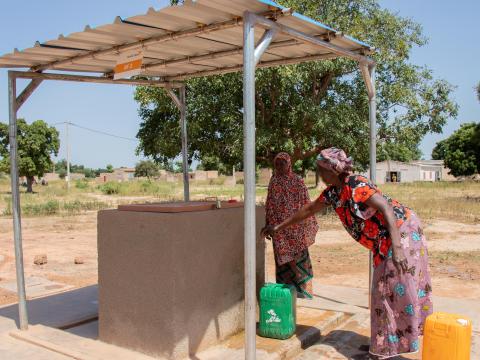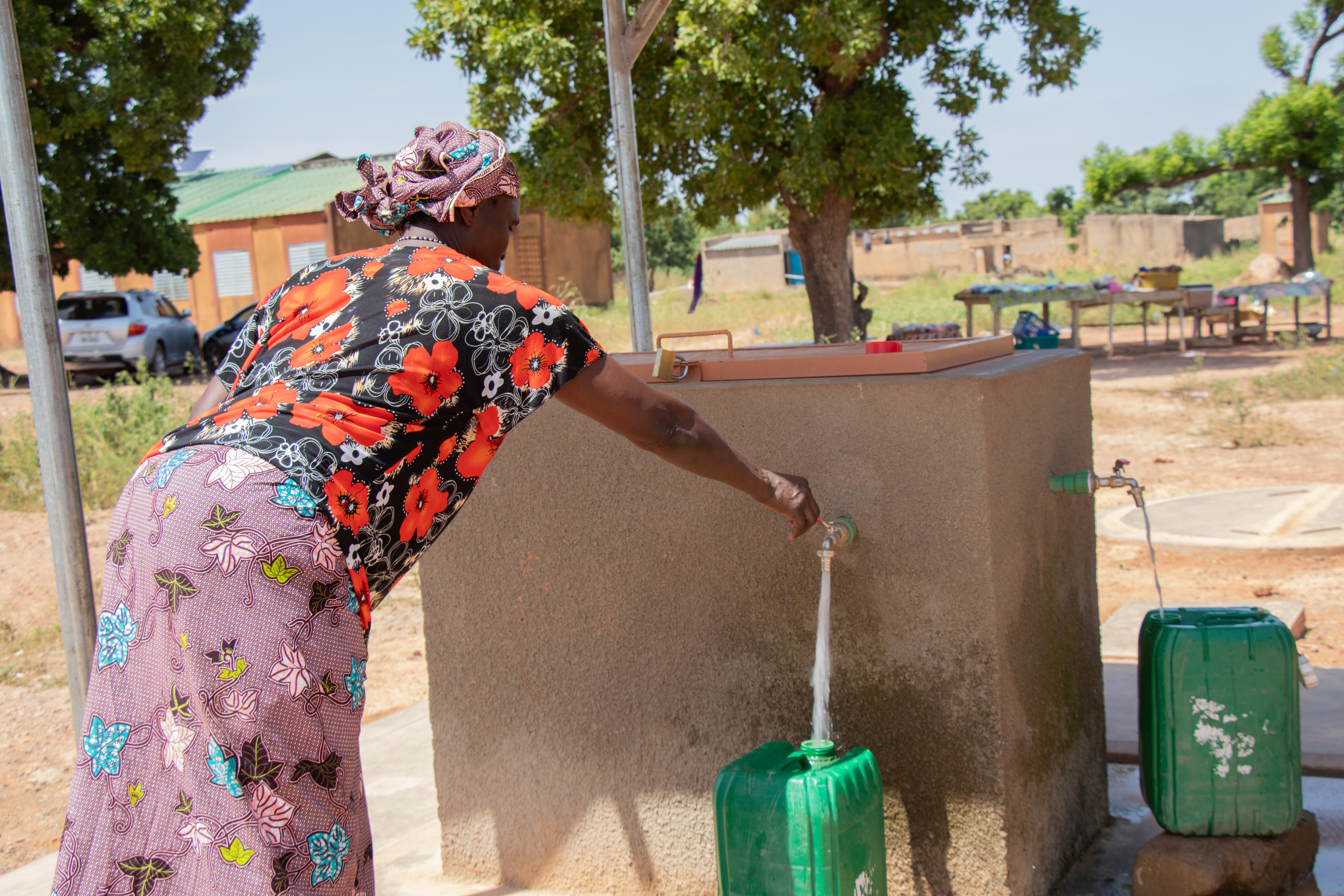Burkina Faso : Water flows in Roumtenga thanks to World Vision standpipes

By Noëlie Wendpanga Sawadogo, Country Communication Specialist.
With a scarf tied around her head and two 20-litre jerrycans in her hands, Pascaline walks briskly towards a standpipe with a tap installed a few metres from the Roumtenga health centre to collect water. Roumtenga is a peri-urban area in the 4th arrondissement of Ouagadougou. In addition to the host communities, households displaced by insecurity have been living there for several months. Pascaline and her family have lived in this area for almost 20 years

Once at the standpipe, she fills the two canisters in a matter of minutes and heads back to the health centre where she has worked as a cleaner for many years. "My daily life has changed completely. When I get to the standpipe, all I have to do is turn on the tap and I've got as much water as I want. I don't suffer anymore," she says with a big smile.

For years, access to drinking water was a major challenge for the people of Roumtenga Centre. Hand pumps made it possible to get water, but using them was a hassle.
" My daily life has changed completely. When I get to the standpipe, all I have to do is turn on the tap and I've got enough water. I don't suffer anymore," she says with a big smile.
"I used to suffer a lot in search of water, because we had to get up very early and walk 15 kilometres to get water, the quality of which we had enough doubts about because it often looked cloudy. And because these are hand pumps, it was very tiring for me. Then I had to come back and clean the rooms in the health centre. I ended my days completely exhausted".
As part of World Vision's urban programme launched in February 2024, which aims to "promote just and inclusive cities where children and their families thrive in safe, healthy, resilient and prosperous environments", Roumtenga was identified to benefit from water infrastructure to improve access to basic drinking water for community well-being.
" When we first heard about the project, we didn't really believe in it. We wondered how long it would take for the machines to arrive. Within a few weeks, water was available at the standpipes," says Pascaline.
In Roumtenga, World Vision built a mechanised solar water system connected to two standpipes with three taps each, providing drinking water to 1,543 people, including 820 children.

" I'm not very young anymore and going to the pump was very tiring for me and even gave me chest pains, but since the standpipes are here, the work has become much easier for me. I spend less time fetching water without much effort, I get the job done quicker and I can spend more time at home with my family. Hygiene in my household has also improved a lot," adds Pascaline. "There's enough water to drink, to wash the dishes, to do the laundry, to wash the children and even to give the animals something to drink. Before, we had to ration water because it was hard to get.
To monitor and maintain the infrastructure, a five-member water management committee was trained in the management and sustainability of solar water systems. The training was conducted out with the support of WASH technical services in the Centre region.
Each standpipe user pays 10 FCFA ($0.016) for each 20-litre container filled at the standpipe. This money, collected by the Water management committee, is carefully guarded to cover any minor maintenance needs that may arise.
"I've lived here for years and I never imagined that the day would come when we'd be using standpipes in Roumtenga. Today it's a reality. May God bless all those involved in making this project a reality," concludes Pascaline.
Through the urban programme launched in February 2024, World Vision has helped 17,387 people, including 12,121 children, gain access to clean water. 5,696 people now have access to basic sanitation and 59,453 people have been supported to adopt healthy hygiene behaviours.